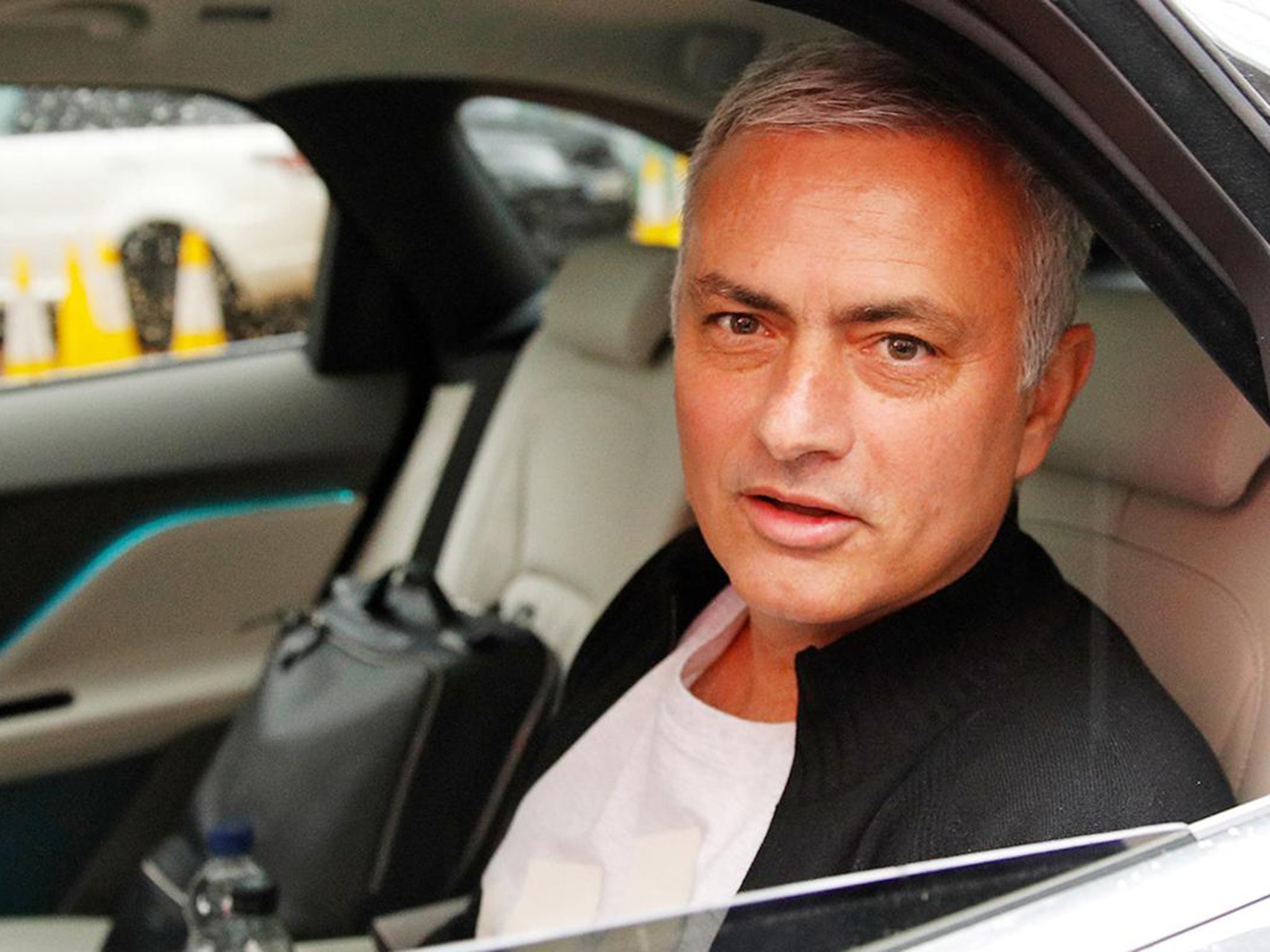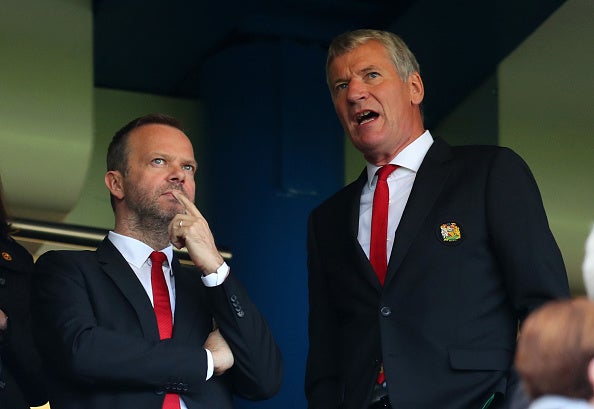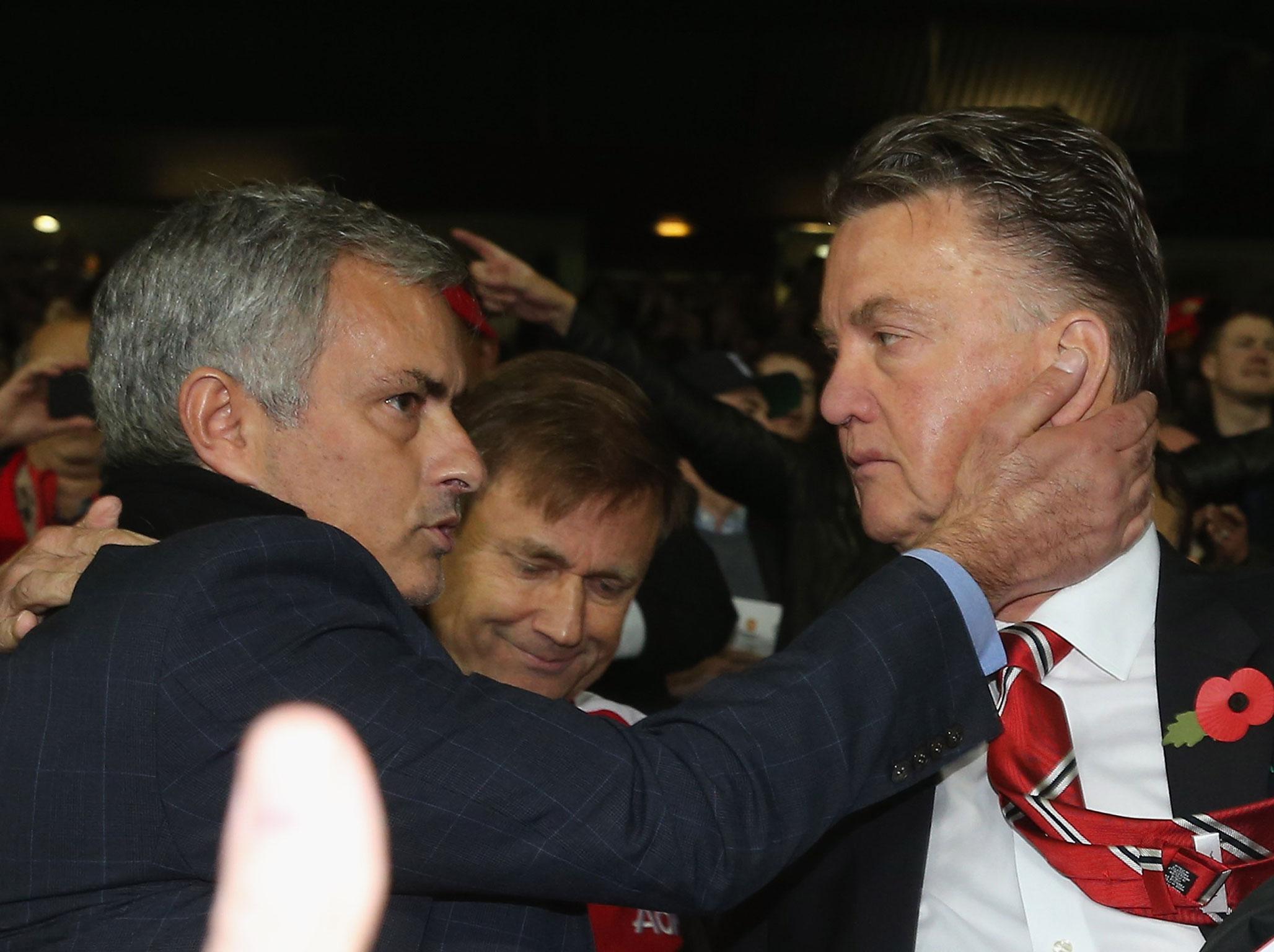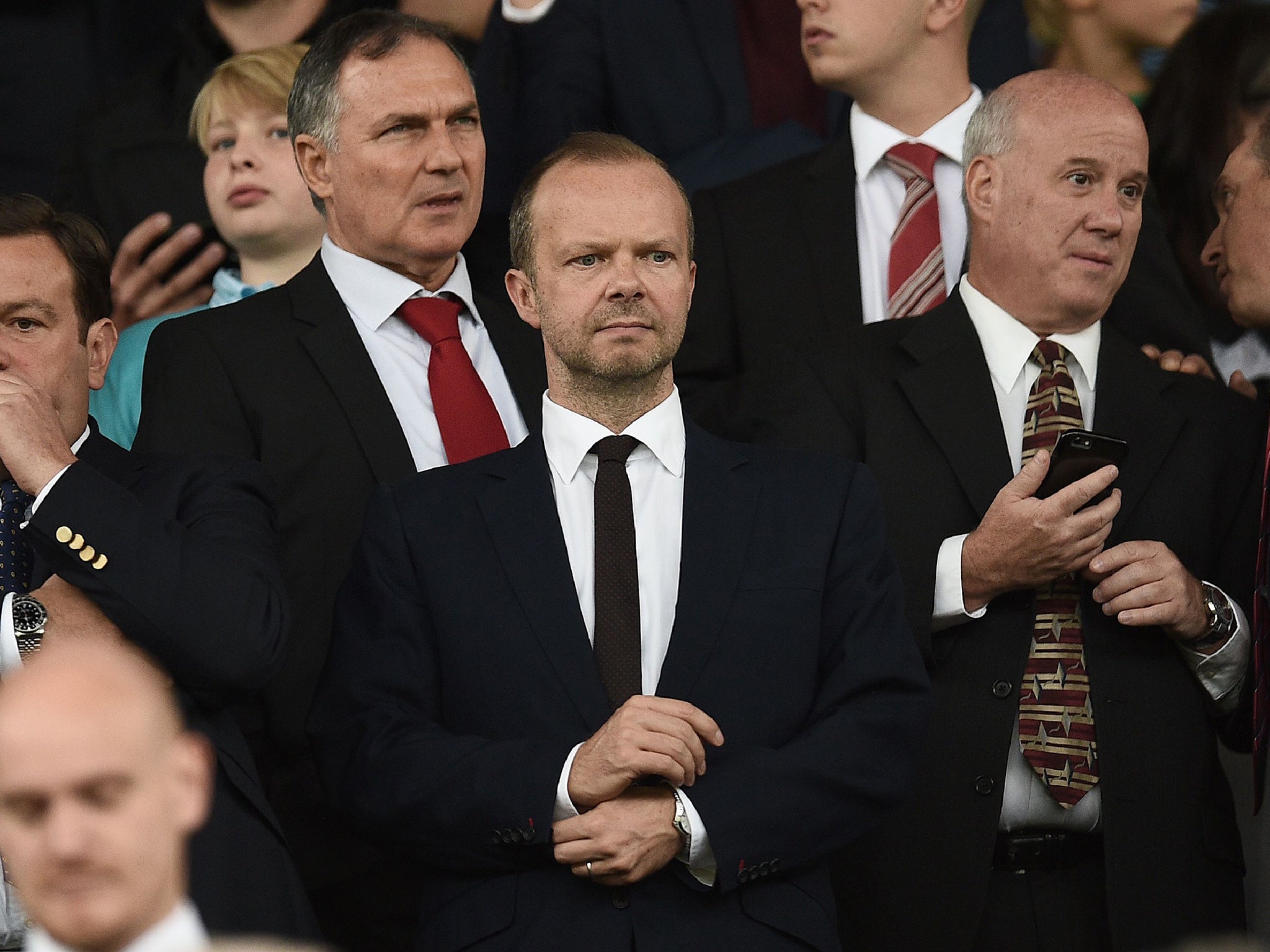Why Manchester United will always make decisions for profit, not trophies, that reflect its true share price
On the day that United hit their ultimate low under Jose Mourinho, the club effectively won the equivalent of the quadruple off the pitch to hit an all-time high on the New York Stock Exchange, so does winning trophies really mean anything anymore?
Following the announcement that Manchester United had parted ways with manager Jose Mourinho on Tuesday, the club’s share price had increased by 3.3 per cent within the first fifteen minutes of trading on the New York Stock Exchange (NYSE).
The club’s stock closed at $18.30 (£14.45), up 5.78 per cent on the day and adding £130m to the club’s market cap.
As of the opening bell on Thursday, the stock had climbed further, up over 10 per cent since the club’s announcement, adding almost £225m to the club’s market cap (“market cap,” by the way, is just a common financial term used to state the value of a company’s total stock and is a very simplified way of understanding the relative value of a company. The number is derived from multiplying the share price by the number of outstanding shares).
What exactly does this mean and is the rise in Manchester United’s stock a direct result of parting ways with its manager? Or, is it a coincidence and was the rise driven by other market forces?
Manchester United’s final investor prospectus prior to launching its IPO in August 2014 specifically highlighted Louis van Gaal’s strengths as a manager before mentioning any other relevant key performance indicators or unique selling points (i.e. positive aspects of the club that would ideally serve to strengthen investor confidence).
The 40-page prospectus led with the fact that Van Gaal had previously won the league with every club he had managed prior to joining Manchester United, was coming off leading the Dutch national team to a third-placed finish during the 2014 World Cup, and assembled a senior staff with over 150 years of cumulative football experience.
It was only after establishing Van Gaal’s history of success and the likelihood of him replicating that success at Manchester United did the club proceed to outline its business model and numerous commercial advantages.
This example serves to highlight the importance of the manager with respect to investor confidence in Manchester United.
The manager at Manchester United arguably has the largest impact on driving on-pitch results. As will be discussed further, on-pitch results, at least in the short term, may not have a direct negative effect on the share price. In the long term, however, on-pitch results will have a substantial impact on putting the club at an advantageous or disadvantageous position with regards to profits or losses, depending on the outcome of those results.
Football clubs, by nature, are comparatively tiny businesses. As an example to illustrate this, Manchester United’s kit partner, Adidas, has earned more (and by “more,” we mean billions of pounds more) in the last six months than Manchester United has earned in its 140-year history. In a smaller business and especially one that has such an important position akin to the football manager, changes to this role chain can have a disproportionately large impact, at least in the short term.

Of course, managerial changes are just one of many things that drives Manchester United’s stock. Other factors include the club’s susceptibility to fluctuations in the foreign exchange market, relevant geopolitical and economic events (examples include the reduction of US corporate tax rate, which led to a £50m write-off by Manchester United, general investor uncertainty relating to Brexit, and overall market trends), the value of relevant domestic and international broadcasting deals, the club’s participation in European competitions, and crucially, the club’s commercial efforts.
It’s important to note that Manchester United and its stock are unique. While other clubs (including Juventus, Roma, Lazio, Celtic, Rangers, Benfica, Sporting, Borussia Dortmund, Ajax, and until recently, Arsenal) have shares that are publicly traded, Manchester United is club is the only football club in the world listed on the NYSE.
This means that unlike any other football club, Manchester United are subject to certain financial regulations and US laws, including the Securities Exchange Act of 1934, the Sarbanes-Oxley Act of 2002, the Dodd-Frank Wall Street Reform and Consumer Protection Act of 2010, rules of the US Securities and Exchange Commission (the “SEC”), and the NYSE’s corporate governance listing standards. As Manchester United is classified as a foreign private issuer, it is exempt from certain corporate governance standards and has availed itself of other classifications to secure additional exemptions.
However, the club, and more specifically, the club’s board of directors is held to a fundamental obligation, and that is to adhere to the overarching principle of representing the interests of the shareholders in its decision-making processes. In practical terms, what this means is that Manchester United’s decision-makers are legally obligated to make the decision that they believe, in good faith, will lead to the most profitable outcome.
In order to fully understand Manchester United’s business model, it is important to realise that above all else, decisions are made in the pursuit of profits, not trophies. Fortunately, on-pitch success and off-pitch profitability are not mutually exclusive, and Manchester United has shown that success can lead to profitability and vice-versa. Since going public in August 2012, the club have won the Premier League, the Europa League, the FA Cup and the League Cup. However, during that time period, domestic rivals Manchester City and Chelsea have both won more trophies.

Foreign exchange issues
Foreign exchange (“forex”) is something every other Premier League club as well as any company engaging in transactions involving multiple currencies needs to contend with. In a football context, when a club pays its employees, service providers and utility bills in pounds, but regularly sells players in euros and receives dollars from commercial sponsors, it becomes necessary to hedge against currency fluctuations.
While Manchester United have executed a number of hedging strategies, including the utilisation of forward exchange and forward currency contracts, the nature of the club means that it remains susceptible to currency fluctuations. In FY2017, for example, favourable exchange rates generated over $8m (£6.36m) to the club’s cash flow. In FY2018, Manchester United also saw a positive increase to cash flow as a result of favourable exchange rates, with a $175,000 gain (£138,000).
However, the forex market can be volatile, especially in light of the current global and domestic issues. Although Manchester United saw a positive gain of nearly £6.4m in FY2017, the club actually lost $4.7m (£3.7m) in Q2 of FY2017. A very unfavourable second quarter with respect to forex rates was substantially mitigated by a gain of over £10m during the other nine months.
Similarly, in Q2 of FY2018, Manchester United saw a positive increase to cash flow of $7.36m (£5.8m) deriving from favourable exchange rates. However, as mentioned, in FY2018 overall, the club’s gain was just £138,000, meaning that during the other nine months, the club lost over £5.5m due to the effects of exchange rates.
Off-pitch events versus on-pitch events
On 31 August 2018, Manchester United was coming off back-to-back losses, losing 3-0 at home to Tottenham Hotspur after losing 3-2 away to Brighton. The club were sitting in 13th place, and just three weeks into the season, were already six points off the pace at the top of the table.
The transfer window had closed weeks ago, with the club signing Fred, Diogo Dalot and Lee Grant, and each signing announced more than two months prior. The centre-back so desperately desired by Jose Mourinho was nowhere to be seen.

The club’s only notable outgoing transfers were Daley Blind to Ajax for an initial fee of around £14m and Sam Johnstone to West Bromwich Albion for an initial fee of around £6.5m. Several players, the manager, and board members were being roundly criticised by fans and in the media.
On that same date, the club’s share price reached an all-time high of $26.20.
With disappointing results on the pitch and signs pointing towards a potentially tumultuous season, how, exactly, did this happen?
On the surface, this might seem paradoxical or even counter-intuitive, but off-pitch results, at least in the short term can have a much more substantial impact on Manchester United’s value than on-pitch results.

On 31 August, Manchester United had just enjoyed a six-week period which saw the club achieve the following commercial successes –
- launch its official mobile app (which was the number one most downloaded sports app in 68 different markets on the App Store, and a top 10 most downloaded app in an additional 123 markets), the commercial potential of which is extraordinary
- sign its first-ever sleeve sponsorship deal with Kohler
- sign lucrative multi-year global sponsorship deals with whiskey company, Chivas and betting company, MoPlay.
- launch MUTV on four new platforms; Amazon Fire TV, Apple TV, Roku and Xbox.
This is essentially the off-pitch equivalent of winning the quadruple, and these events have a much more substantial impact on the club’s long-term future, financial health and profitability than a poor start to a season.
This has been admittedly a bit dense for a football article, so what are the key points to take away here?
Firstly, managerial changes tend to lead to short-term fluctuations in Manchester United’s share price.
Secondly, there are several other factors, including both on and off-pitch events that can and do have material effects on the club’s share price.
Lastly, Manchester United’s stock could see another short-term bump in the lead-up to, and when the club’s new permanent manager is announced, providing that the choice inspires confidence in Manchester United remaining in the Champions League and retaining (and ideally growing) its enviable commercial appeal to prospective sponsors.
Join our commenting forum
Join thought-provoking conversations, follow other Independent readers and see their replies
Comments
Bookmark popover
Removed from bookmarks